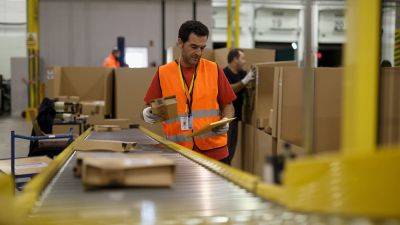Nobel laureate Paul Romer sees diminishing returns for AI, as FDI still ‘killer app’ for emerging economies
“The growth of digital technology hasn’t in the past ushered us into this new era of much more rapid productivity growth, and I doubt that it’s going to do it now,” Romer told the South China Morning Post on the sidelines of the UBS Asian Investment Conference in Hong Kong on Tuesday. “So I think the perception that somehow everything has changed is like the perception that cyber currencies are going to change the world.”
For Romer, though, waiting for AI to push worker productivity growth to new heights is a fool’s errand. The surest way to growth, he said, is foreign direct investment (FDI).
“There’s two different ways you can think about globalisation unfolding,” he said. “One is Japan has companies that make cars, and then they put those cars on boats, and they ship them all over the world. Another is Japan has companies that are good at making cars, and then they go make cars in the United States and other places around the world. I think people underestimate, especially in the developing world, the gains that can come from that type of direct foreign investment.”
The primary reason for that is how workers will gain new skills on the job, he said, and that has downstream implications for an economy. Without those work opportunities, people miss out on chances to build up that knowledge and experience.
The other challenge that Romer sees is that AI, as an algorithmic technology that is just “trying to fit a curve”, is bad at predicting and understanding rare events that humans can easily comprehend. He used the example of autonomous driving, which works well in ideal conditions but can result in accidents in scenarios with more complicated traffic patterns or reduced visibility.
Bill MacCartney, chief technology officer







